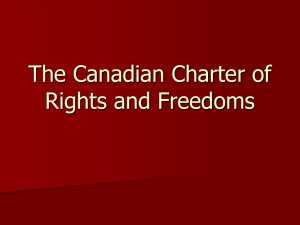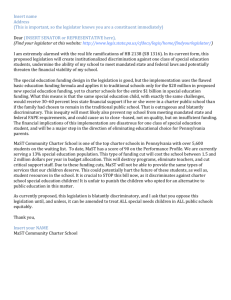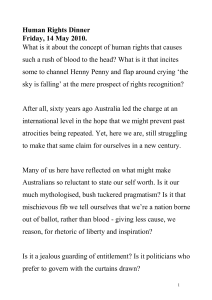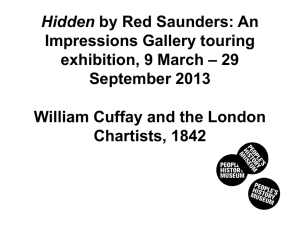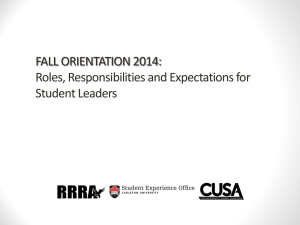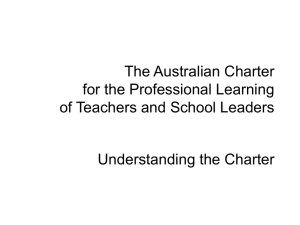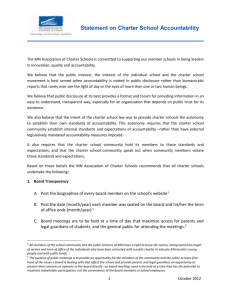RJR-MacDonald Inc. V. Canada (Attorney General)
advertisement
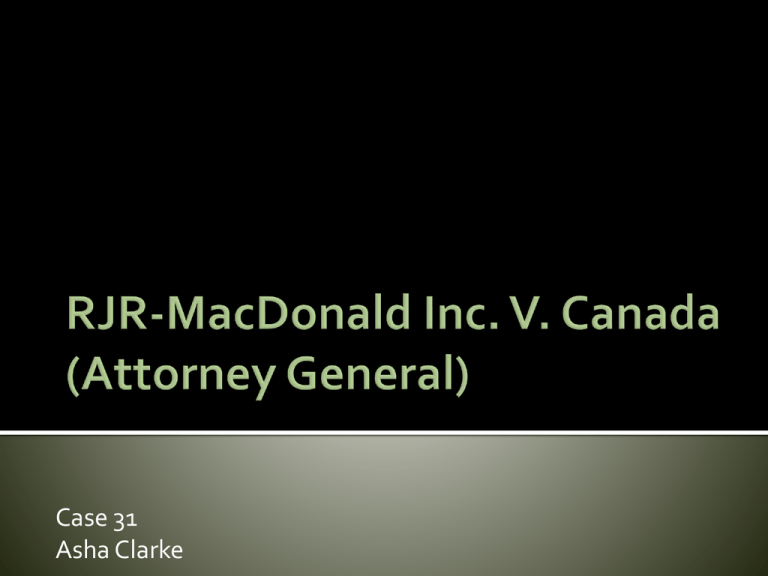
Case 31 Asha Clarke The Tobacco Products Control Act prohibited all advertising and promotion of tobacco products and the sale of a tobacco product unless its package includes prescribed unattributed health warnings and a list of toxic ingredients. RJR-MacDonald and Imperial Tobacco Inc. The appellants sought the declaration that the Act was altogether ultra vires Parliament and invalid as an unjustified infringement of freedom of expression guarantees under the Charter. Both cases were heard at the Quebec Superior Court which found that the Act was ultra vires Parliament and infringed upon s.2 (b) of the Charter. The Court of Appeal reversed the judgement. The appeal should be allowed. Parliament had the competence to enact the legislation under the criminal law power or POGG ss.4,8,9 of the act are inconsistent with the right of freedom of expression in s.2(b) of the Charter and do not constitute a reasonable limit on that right that can be justified under s.1 of the Charter. 1. Whether Parliament had legislative competence to enact the legislation under either, the peace, order and good government of Canada clause or the criminal law power. 2. Whether the Act infringed the right to freedom of expression protected by s. 2(b) of the Charter and, if so, whether it was saved under s. 1 of the Charter. The SCC has expressed the values promoted by the freedom of expression guarantee as ‘the quest for truth, the promotion of individual self-development and the protection and fostering of a vibrant democracy where the participation of all individuals is accepted and encouraged’. Given this, do you believe that the right of freedom of expression of RJR MacDonald Inc –tobacco advertising and promotion, relates to these values?



